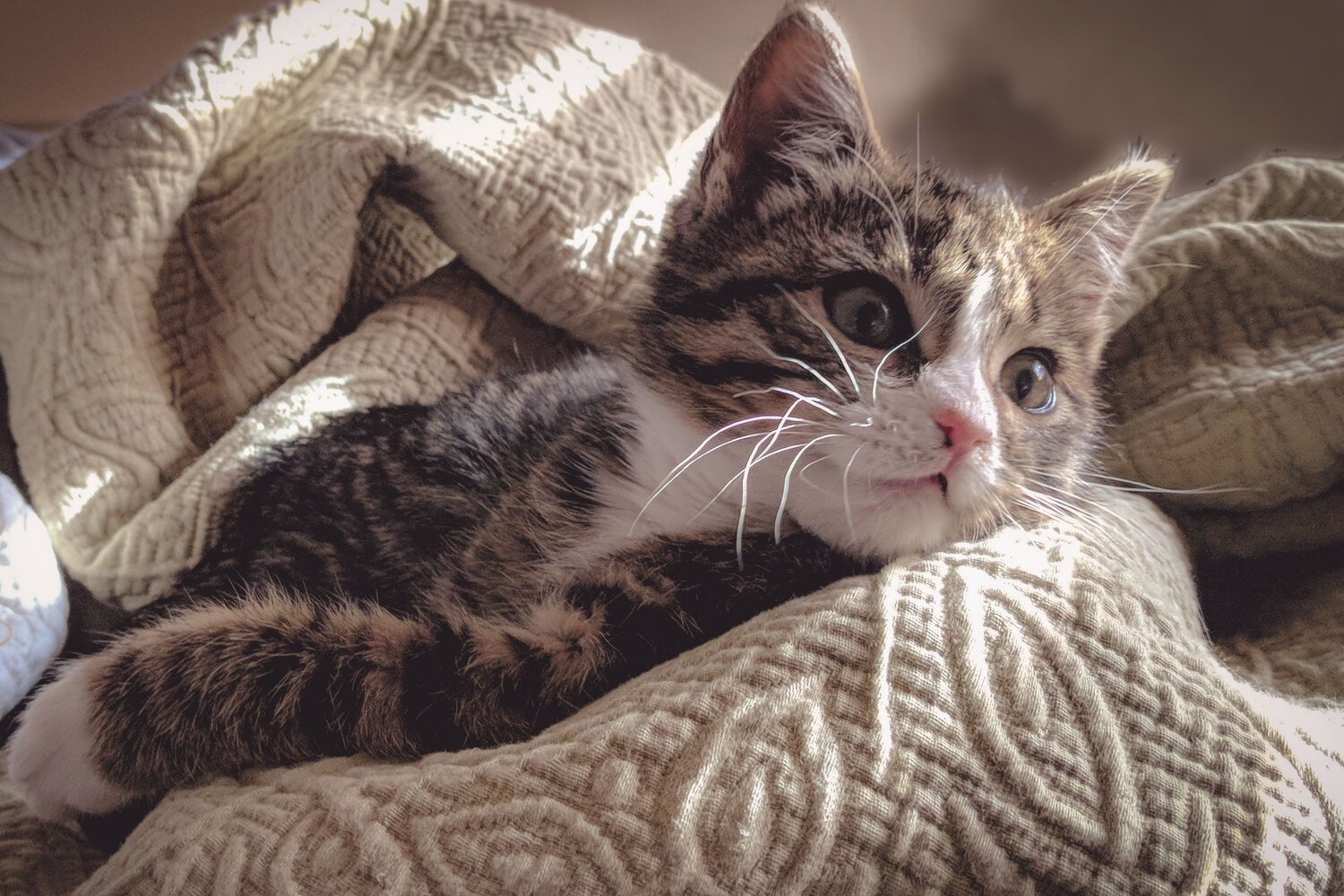
CAT HEARTWORM
Heartworm Awareness for Cats

How do cats get heartworm?
Cats contract heartworm through the bite of an infected mosquito. When a mosquito carrying heartworm larvae bites a cat, the larvae enter the cat's bloodstream. Over time, these larvae mature into adult worms, primarily residing in the heart and lungs.
What is heartworm in cats?
Heartworm disease in cats is caused by the parasitic worm Dirofilaria immitis. Unlike in dogs, heartworms in cats often have a lower survival rate. However, even a small number of worms can lead to severe health issues.
What are heartworm symptoms in cats?
Heartworm symptoms in cats can be subtle, making early detection challenging. Signs may include coughing, difficulty breathing, vomiting, lethargy, and weight loss. In some cases, sudden collapse or death may occur.
Why is early detection and diagnosis of heartworm so important?
Early detection is crucial because, unlike dogs, there is no approved treatment for adult heartworms in cats. Management focuses on preventing further infections and addressing symptoms. Timely intervention can improve a cat's quality of life and overall prognosis.
FAQ
-
Administering regular heartworm prevention medication, available through your veterinarian, is the most effective preventive measure. Consult with our team to determine the best-suited product for your cat.
-
Minimize exposure to mosquitoes by keeping your cat indoors, especially during peak mosquito activity times. Use screens on windows and doors, and consider mosquito control measures in and around your home.
-
Just give your cat the next dose. Alert your vet that you missed a dose. If you live in an area with high incidence of heartworm disease, they might recommend a test.
-
Though there are many holistic and over-the-counter options for cat heartworm, none of them are effective. We recommend discussing preventive strategies with our veterinary team to ensure your cat receives the best protection possible.
